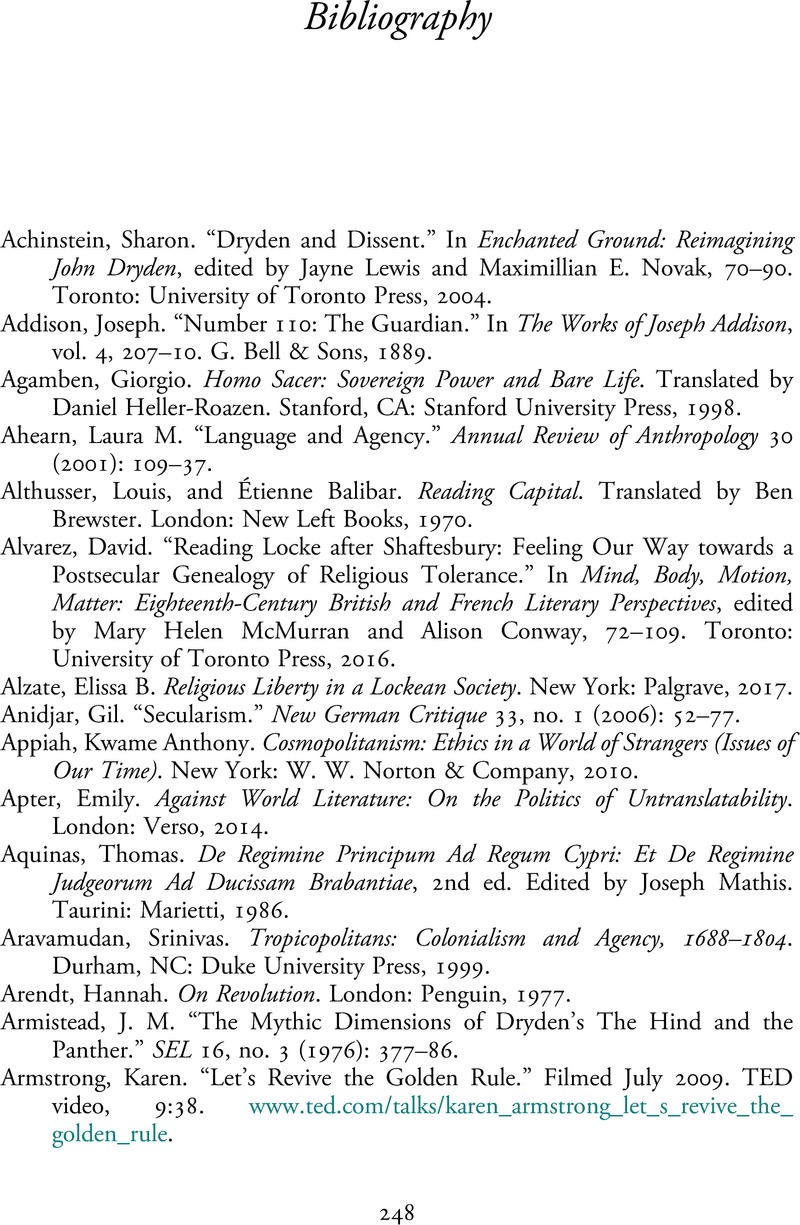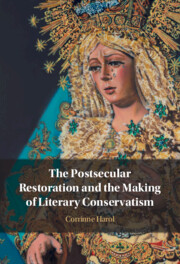Book contents
- The Postsecular Restoration and the Making of Literary Conservatism
- The Postsecular Restoration and the Making of Literary Conservatism
- Copyright page
- Contents
- Acknowledgments
- Introduction
- Part I Political and Fictional Relations
- Part II Postsecular Literary Experiences
- Part III Political Agents and Novel Forms
- Bibliography
- Index
- References
Bibliography
Published online by Cambridge University Press: 22 June 2023
- The Postsecular Restoration and the Making of Literary Conservatism
- The Postsecular Restoration and the Making of Literary Conservatism
- Copyright page
- Contents
- Acknowledgments
- Introduction
- Part I Political and Fictional Relations
- Part II Postsecular Literary Experiences
- Part III Political Agents and Novel Forms
- Bibliography
- Index
- References
Summary

- Type
- Chapter
- Information
- Publisher: Cambridge University PressPrint publication year: 2022

